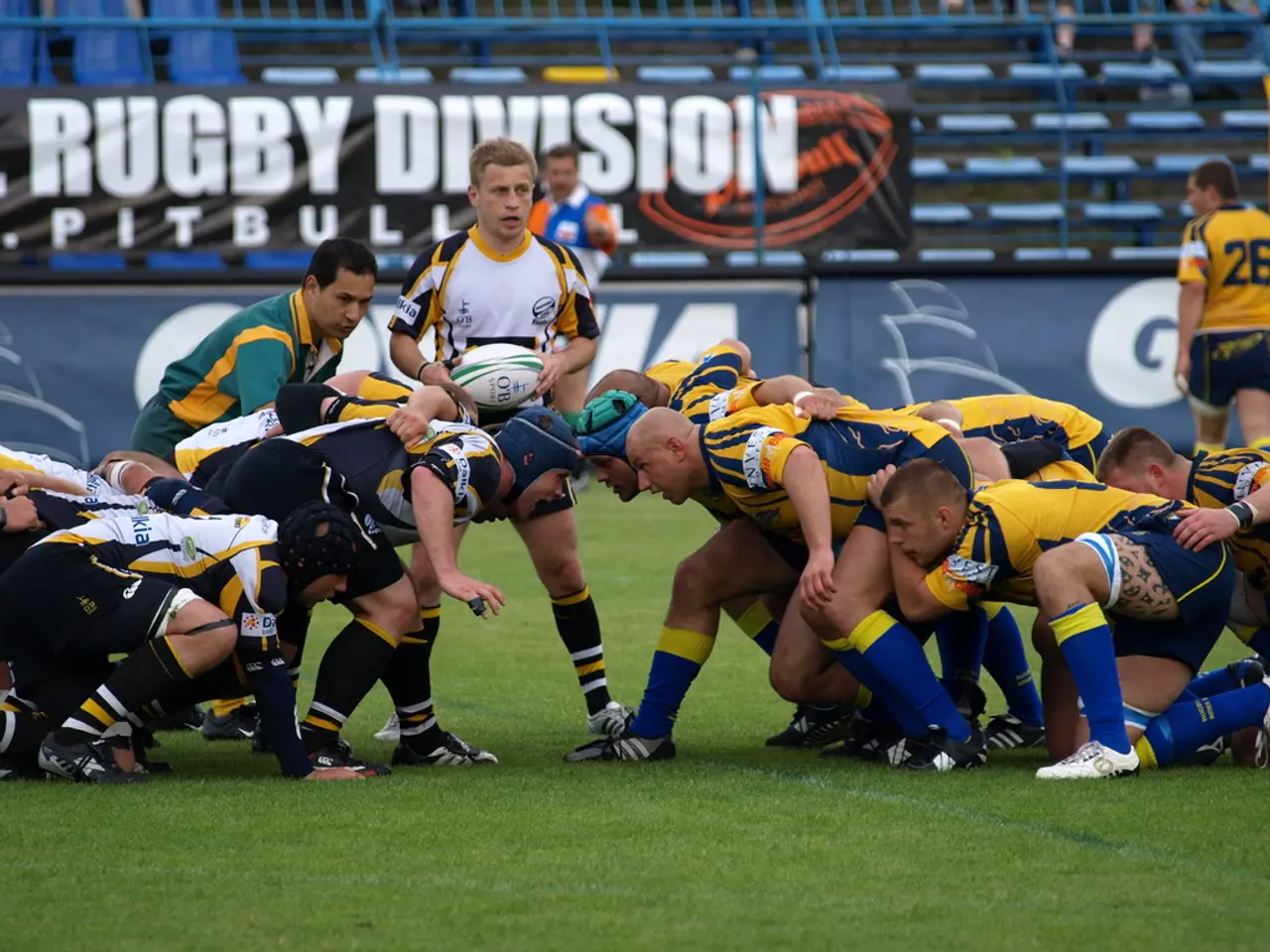Impact of Rugby League in School and Youth Development Schemes across Australia
Schools across Australia are recognising the benefits of integrating sports, particularly Rugby League, into their educational programs. The sport, traditionally celebrated for its physical demands, is increasingly being hailed as a powerful tool for fostering social, emotional, and educational growth among young Australians.
One of the most notable advantages is the improvement in academic performance among athletes. The increased concentration and determination in the classroom, often seen in student-athletes, leads to better grades. This is attributed to the discipline, resilience, and goal-setting skills that rugby league instills in its players.
Community engagement is another crucial aspect of these programs. Local clubs often partner with schools, making it easier for students to engage with the sport. This partnership strengthens communities, with local clubs becoming a hub for families, connecting people from diverse backgrounds.
Technology plays a significant role in promoting these programs. Schools are utilising online platforms to engage students and parents, showcasing achievements, events, and team highlights. This digital approach helps reach a wider audience and creates a sense of unity among participants.
Rugby League's emphasis on teamwork and collaboration extends beyond the field. Students involved in these activities tend to develop stronger leadership skills, build deep friendships, and experience mental health benefits. Not every player will go professional, but all will gain something from the experience, fostering a sense of belonging and laying the groundwork for future success.
Coaching is another vital component of these programs. A good coach can inspire young athletes, teaching them fundamentals of the game and important life lessons, including leadership skills. Community engagement is essential, with coaches connecting with local organisations to create supportive networks, leading to scholarships, mentoring, and advanced training programs.
Programs like "League Stars" and "NRL School Catalyst" target primary and secondary students, focusing on skill development, teamwork, and community engagement. These initiatives have proven successful, with numerous successful school programs across Australia illustrating the positive impact of Rugby League in youth development.
However, challenges remain. Many schools face obstacles in promoting Rugby League, including limited resources, struggling to find qualified coaching staff, and participation rates favouring more popular sports. Events like matches and fundraisers help nurture a spirit of camaraderie, with young athletes developing pride in their community while representing their teams.
Looking ahead, there are avenues for improvement within youth programs. Integrating Rugby League into sports education curriculum, offering clinics and workshops, and engaging high-profile players as mentors could further enhance these programs. The success of these school programs highlights the multifaceted benefits of engaging in sports, focusing on creating a supportive environment for personal development.
In summary, Rugby League is more than just a game in Australia. It serves as a powerful tool for physical, social, and emotional development among youth. The benefits gained through participation in such programs can last a lifetime. By focusing on fitness, teamwork, and community ties, this sport lays the foundation for well-rounded individuals. Integrating Rugby League into school and youth development programs offers multiple significant benefits, including pathways to professional sport, community engagement, enhanced physical and social development, and targeted support for disadvantaged groups.
Education-and-self-development programs that incorporate sports, such as football (Rugby League), foster not only physical growth but also emotional and social development in young Australians. Students who participate in Rugby League often demonstrate increased focus and determination in academics, thanks to the discipline, resilience, and goal-setting skills they acquire through the sport.
Community partnerships, like those between local football clubs and schools, play a crucial role in these programs, fostering connections among people from diverse backgrounds and strengthening communities.




